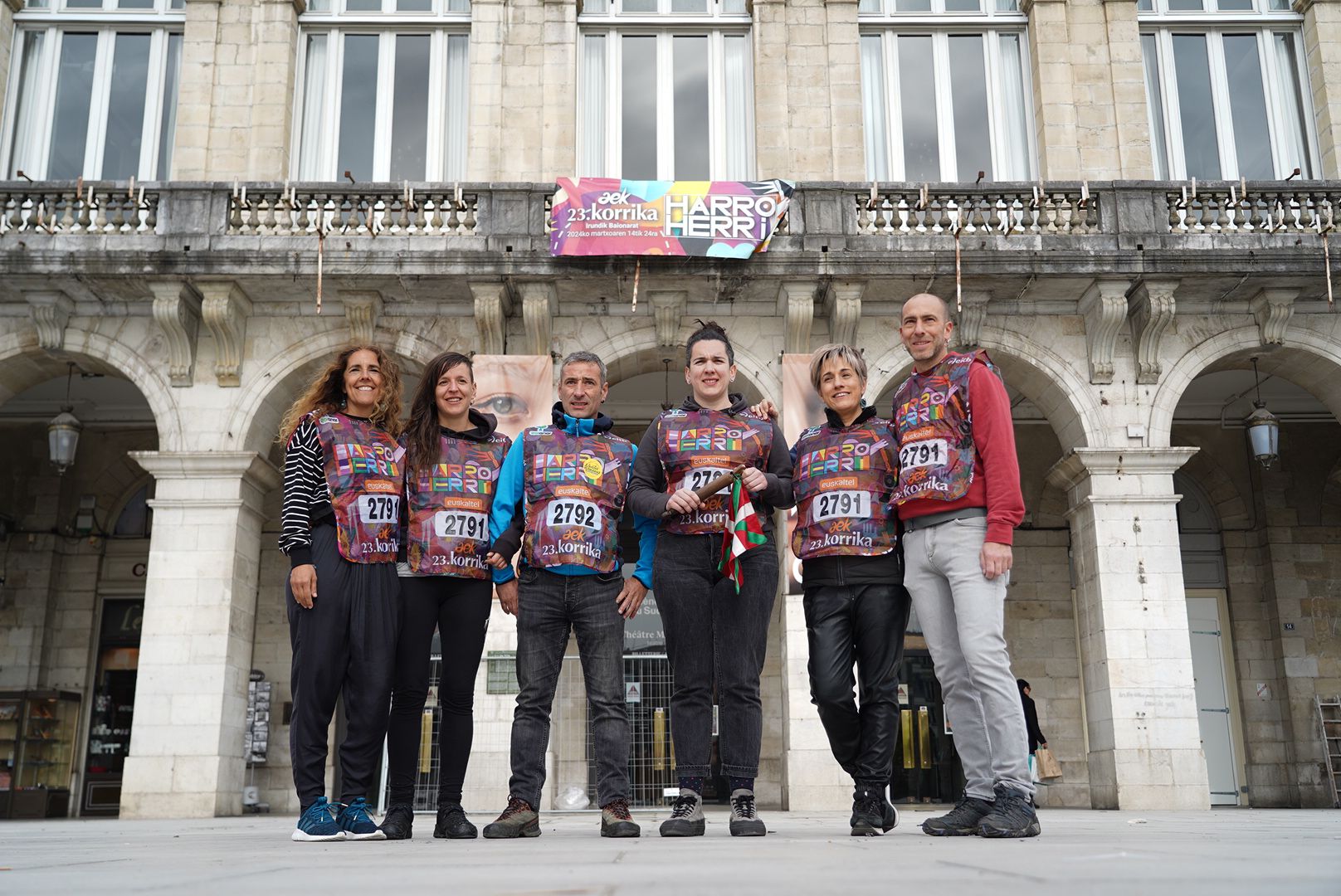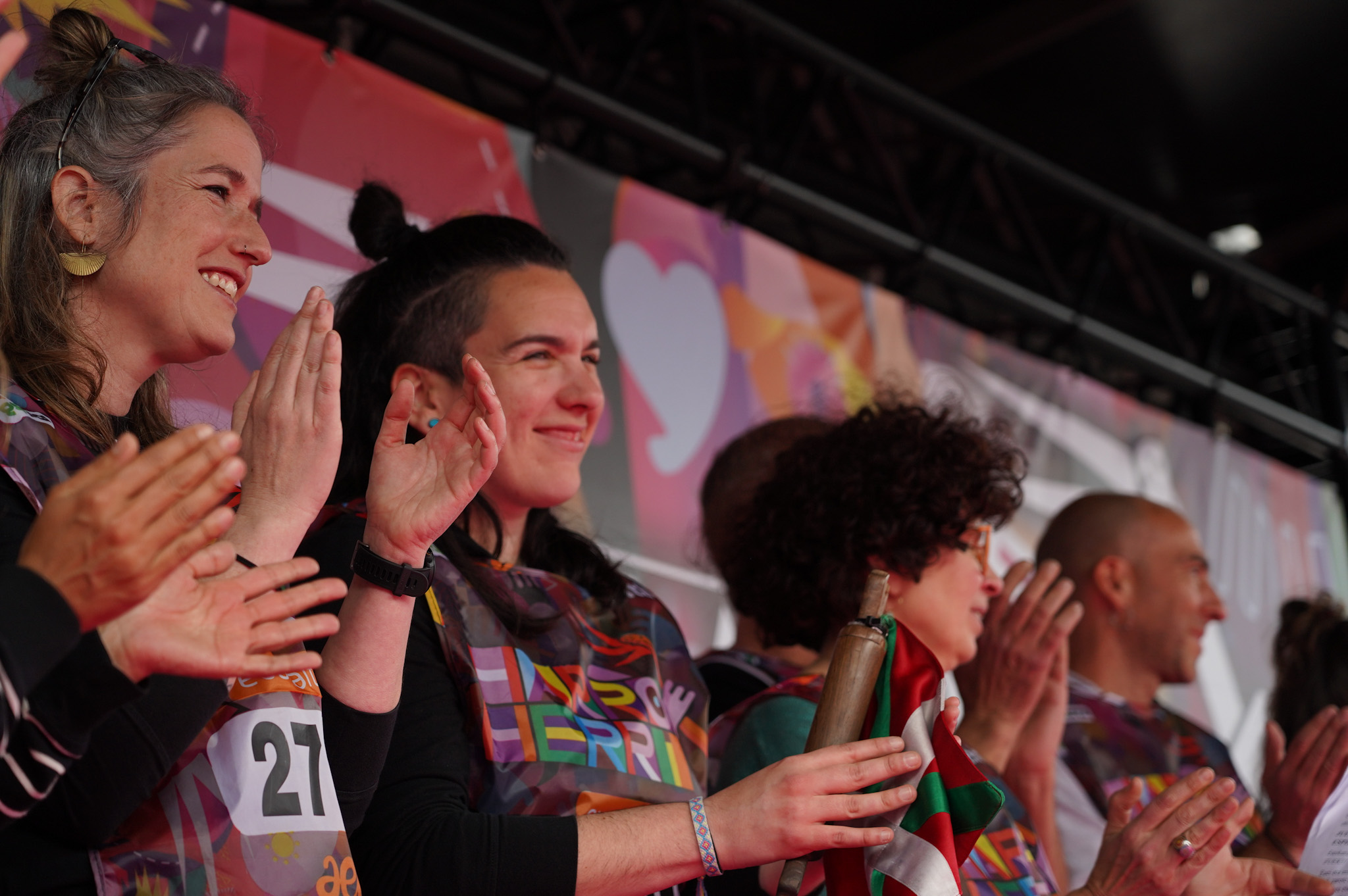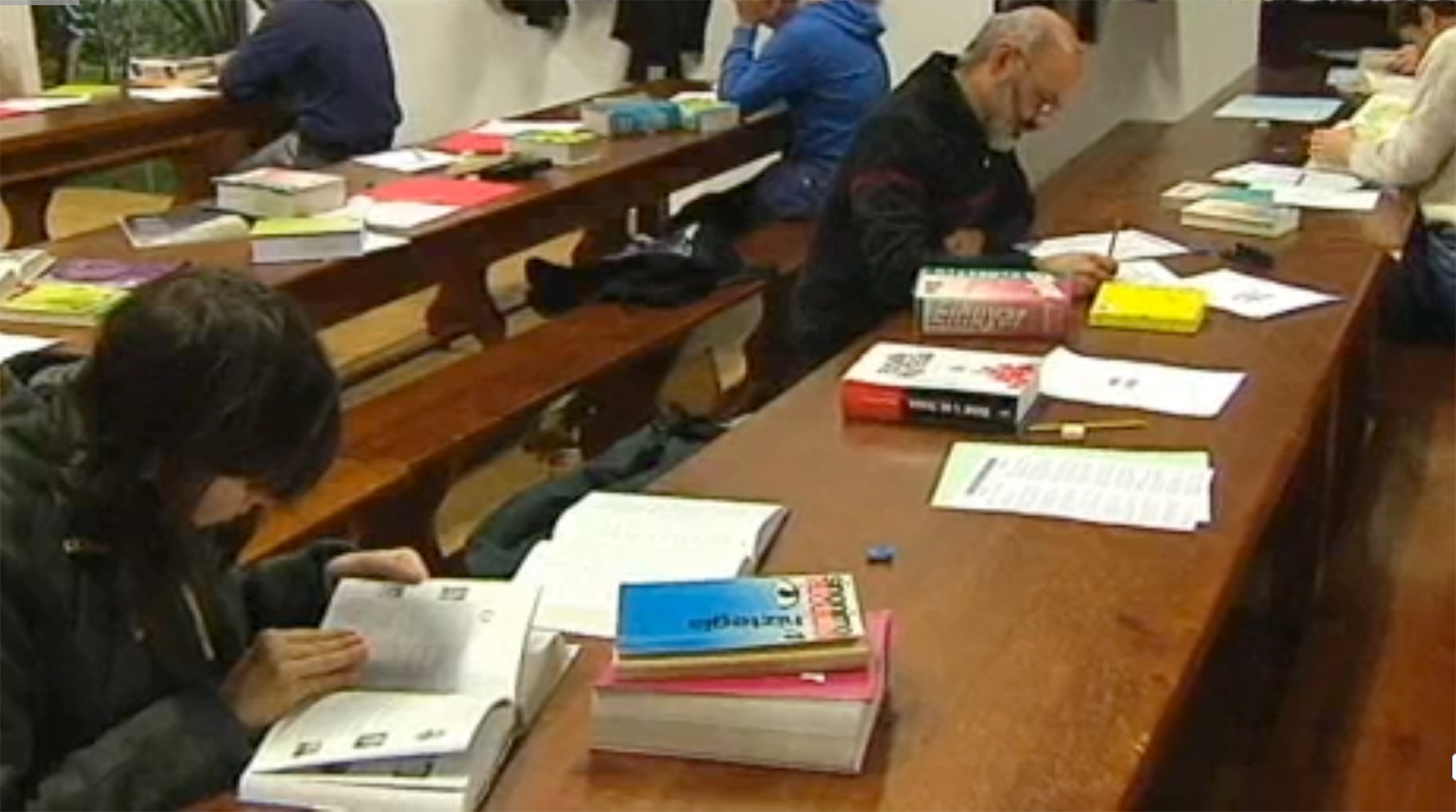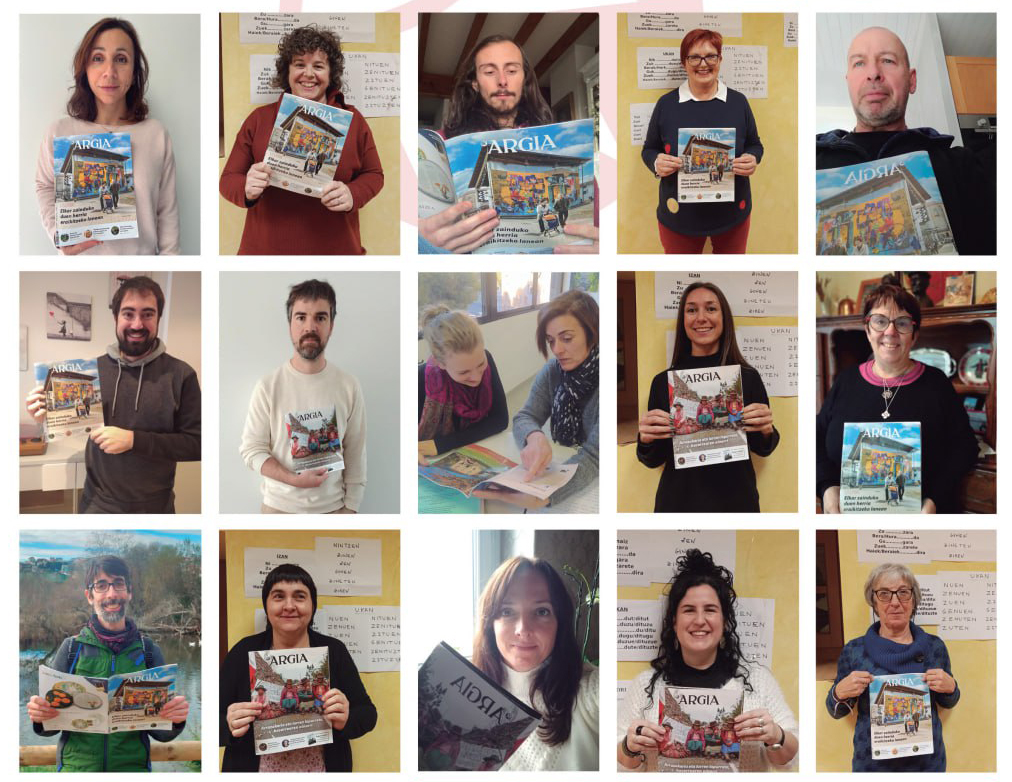Ethiopian, Austrian and two Hungarians learning Basque
- They have spent part of the summer learning Basque in the barnetegis of our peoples. We have contacted foreigners – or supposedly foreigners – in search of those who have to say on the way to learn the language that many of those living there have left. We've been told this...
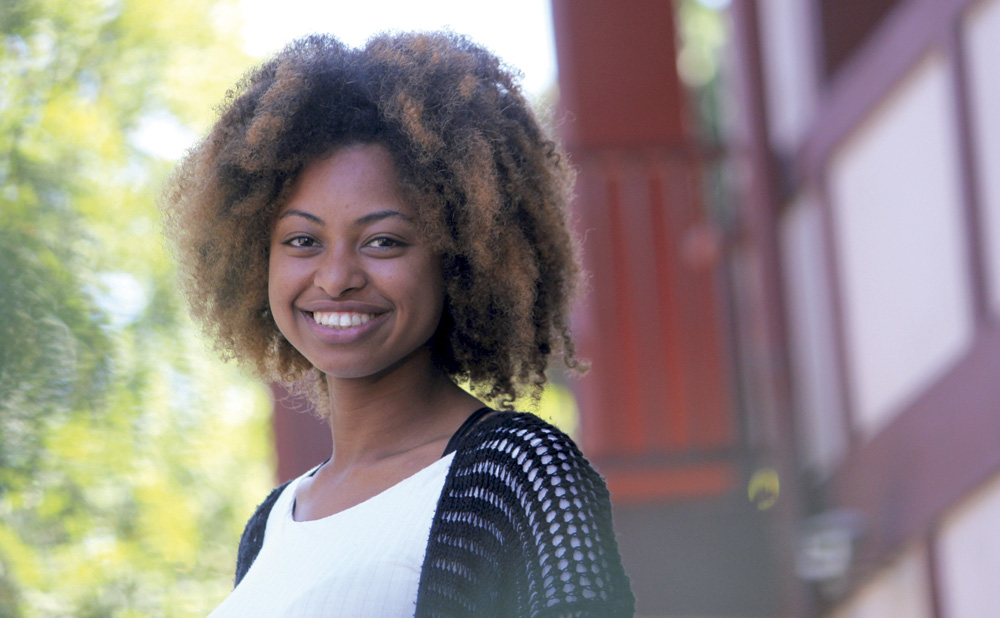
Ethiopian of Gernika
Yemisirach Adimassu (Addis Ababa, Ethiopia, 2000), a student of Gernika four years ago, has attended the ESO at the San Fidel ikastola in the village and is now in a nursing module at Amorebieta-Etxano, with the aim of learning more. Addis came to Ababa's house with Sister Afrike. “Here lives the adopted. They also wanted me to adopt, but a little older now I, and not being able to adopt, were able to bring me through the curriculum”. As soon as they arrived, he found the language here, or those spoken in our country. “I didn’t know I was Basque, and I didn’t know how to speak Spanish either. When I started here at ikastola, I did it in English with my friends!” The French language helped the newcomer to establish his first contacts. “I just knew that in Spain they were speaking in Spanish. But I came to Euskal Herria, to Gernika, and here too we speak Basque. And in addition, I like to speak in Basque. And I find it easier than learning in Spanish. The truth is that I speak much better in Basque than Spanish. At home we also speak in Basque.” Meanwhile, it's up to him to learn, the bunch of bertsolari verbs there, the words, a thousand more... “At first, everything was new, everything was new, because it was a lot of verbs. I had to learn everything all of a sudden. The first two years were hard for me. Sometimes I came to think I was wasting my time. I studied, studied and didn't overcome. I was crying. My friends, on the other hand, encouraged me. And I had to learn more, to reclaim the subject, and I overcame it." In the end, they're happy, they're happy at home, they're happy at the teachers. “The teachers of the ikastola told me that they are proud of me, how have I learned!”
Euskaraz Adimassu is listening to the Basque melody of Gernika, speaking in Biscayan. “Nursing, for example, I will learn in Basque in Zornotza, because I like Basque more than Spanish, and I adapt better”. You won't be alone in the nursing pathway. He will also have two fellow students in Amorebieta-Etxano, but those who will do so in Spanish. “Among them they also speak in Spanish. Before, I always answered in Basque, even if I am directed in Spanish. Now I'm starting to answer in Spanish. When I came, in the crew we talked about everything in Basque. Now, more in Spanish than in Basque. I feel like I've lost the Basque." In the meantime, he was hospitalized twice during the summer vacation. The second half of August was at the Baluarte de Amorebieta. “This is what is there!” Adimasso of Gernika said to us and greeted us.
Two Hungarians and one Austrian
The three university students of the same age, although each one has their own way in terms of Basque and other languages. Sara Molnar (Budapest, Hungary, 1992) has spoken to us in Spanish and Basque. When he started studying in Spanish, he learned that the Basque also existed four years ago. He was in Latin America, working as a volunteer in southern Peru. They needed it all, learning to care for and play the children. “I didn’t know Spanish then, but the children there were taught how to read and write through the game. Then I was an Erasmus student in Salamanca for half a year. There I studied well in Spanish and learned that there was also Basque in the Spanish State. When I returned to Budapest, I took Spanish classes in college and started learning languages: Russian, Spanish and Basque.” Sara Molnar has been a professor in Budapest at Oxel Uribe-Etxebarria, a Basque reader and Basque culture at the Etxepare Institute.
.jpg)
Marilena Opferkuch (Graz, Austria, 1996) is an anecdote in Spanish. “In 2009, the UEFA Cup, now called the Europa League, was a championship match in the town in which it lived, in Salzburg. The local team played against Athletic de Bilbao, and it was then that I first heard those names: Bilbao, the Basque Country, the Basque Country… I was struck. After years, last year I really started studying in Basque at the University of Leipzig.” The reader Unai Lauzirika told us. In Leipzig, however, there are Basque, Galician and Catalan readers. Marilena Opferkuch elected you Euskera. And why the Basque Country? “Why not?” he replied, and then: “Because I want.”
It is the first time he has participated in the barnetegi, thanks to the scholarship of the Etxepare Institute. “Our university offers two scholarships a year. This year I have come, I know nothing about next year. It's not fair for me to renove the scholarship, because there are more students who want to come. If I came, I would pay for the course.”
Viktor Ulicsni (Nagykoros, Hungary, 1989) has addressed us in English and in Basque, without understanding anything in Spanish. “I have always been interested in foreign languages and cultures. Maybe I was ten years old when I met Basque. My field is ethnobiology. The knowledge that members of a community have about wild beasts.” Ulicsnik has no objective of reaching a certain level. He's an amateur. Last year he studied Basque at the University of Budapest, and this course has also done so.
While learning languages, Molnar knows the knots of learning the languages of the world. “Learning Euskera, for example, I find it difficult, but not so difficult. In Hungary too, we put the prepositions at the end of the word, and we can make extremely long words. That doesn't make learning easier for me, but it helps me. On the other hand, as I have also learned in Spanish, at some point I have understood the game of the Basque verbal times. I am in the barnetegi of Zornotza and I can say: I have never learned such a fast language, this is the intensive course!” Added by Opferkuch: “Eight hours of class a day, and the rest also in Basque, I would like to learn the language quickly!”
Opferkuch has no great difficulties. “It is said that Euskera has a difficult grammar, cases of decline, verbal paradigms… But if it is practiced, it is not difficult. We've come to the conversation since the Nor-nork work, and I've understood it in the air, because it's the same as the German." Of course, this is not always the case. “I find it hard to learn the words, I think they have the same sound: ‘clean’, ‘ask’, ‘find’…” It's hard to match them in their memory: “And you can see: the rest of the students know much more than we do. We are always talking about ‘I don’t know’.” Ulicsnik said: “Yes. Most of them have Euskera as an expert in Euskera since they were first born. Some are experts in parents; others, at school. They have in their brains a kind of knowledge of language that flourishes instantly. We do not have it. But we have made the way and we can be very proud.”
Four foreign students, in summer in Euskal Herria, studying Basque at the Bastion of Zornotza.
It is not Christmas, however, there will soon be decorations in the big shops to announce it, or at least they say so. In the shop window “Zorionak! Claims like “Gabon ederra passes!” will be exposed everywhere. However, congratulations can be many: the lottery, bringing a... [+]
Badira sei-zazpi urte kartzelan dauden presoek euskara ikasteko duten eskubidea bermatzeko helburuarekin, lanean aritu den euskara-irakasleen sare bat: Presoen Euskara Irakasleen Taldea.














